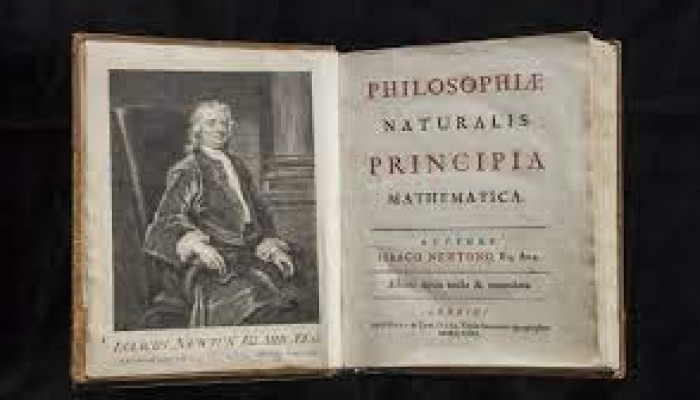
Apr
KIU 29th Graduation Ceremony: Mack M Gbangandimbo's Journey of Insight at KIU
April 25, 2024, 9:19 am
 Collins Kakwezi
Collins Kakwezi

Today marks exactly 334 years since Sir Isaac’s Newton groundbreaking book, Philosophiæ Naturalis Principia Mathematica was first published.
Simply referred to as The Principia, it states Newton's laws of motion, forming the foundation of classical mechanics; Newton's law of universal gravitation; and a derivation of Johannes Kepler's laws of planetary motion and it is considered one of the most important books in the history of science.
No work of science has drawn more attention from philosophers than Newton's Principia. The reasons for this, however, and consequently the focus of the attention have changed significantly from one century to the next.
According to Wikipedia, while acceptance of Newton's theories was not immediate, by the end of the century after publication in 1687, "no one could deny that" (out of the Principia) "a science had emerged that, at least in certain respects, so far exceeded anything that had ever gone before, and it stood alone as the ultimate exemplar of science generally".
Among other things, the Principia;
• shows how astronomical observations prove the inverse square law of gravitation (to an accuracy that was high by the standards of Newton's time);
• offers estimates of relative masses for the known giant planets and for the Earth and the Sun;
• defines the very slow motion of the Sun relative to the solar-system barycenter;
• shows how the theory of gravity can account for irregularities in the motion of the Moon;
• identifies the oblateness of the figure of the Earth;
• accounts approximately for marine tides including phenomena of spring and neap tides by the perturbing (and varying) gravitational attractions of the Sun and Moon on the Earth's waters;
• explains the precession of the equinoxes as an effect of the gravitational attraction of the Moon on the Earth's equatorial bulge; and
• gives theoretical basis for numerous phenomena about comets and their elongated, near-parabolic orbits.
The Principia spread the light of mathematics on a science which up to then had remained in the darkness of conjectures and hypotheses.
Information from Wikipedia plato.stanford.edu was used in this review
Internet Photo
Kampala International University,
Box 20000, Ggaba Road, Kansanga, Kampala